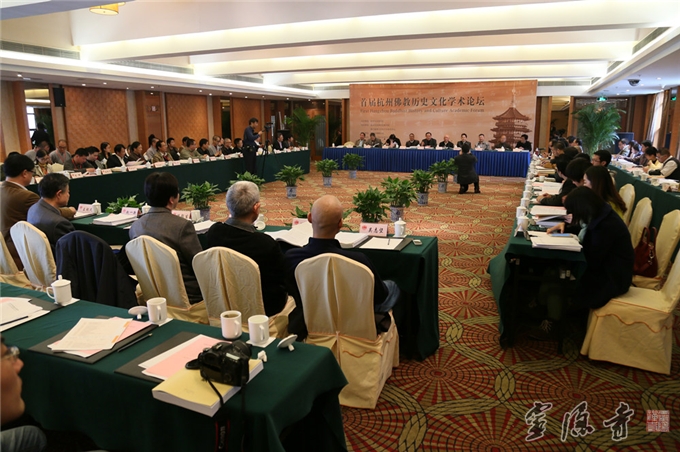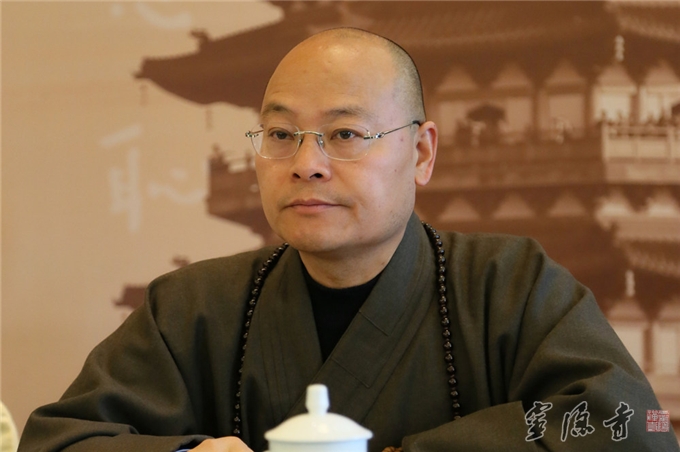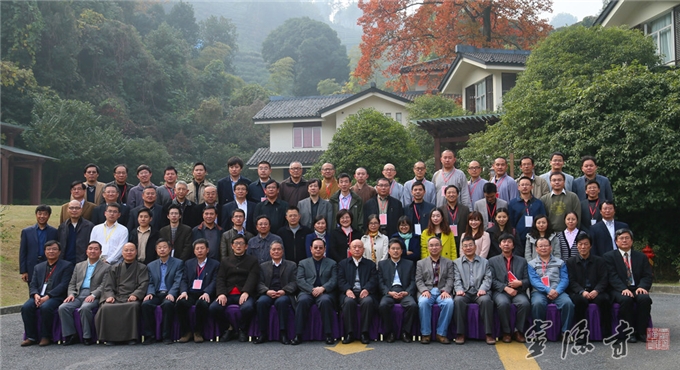On November 23, 2014, the First Hangzhou Buddhist Literature, History and Culture Academic Forum was hosted in Hangzhou and Chairman of the Buddhist Association of Hangzhou and Abbot of Lingyin Temple Venerable Master Guangquan attended the forum and delivered a speech. This academic forum was co-organized by the CPPCC Hangzhou Municipal Committee Research Institute of Culture and History, Zhejiang History and Culture Research Center and the Buddhist Association of Hangzhou. Distinguished participants included Honorary Member of the Chinese Academy of Social Sciences Professor Yang Zengwen, Dean of Center for Chinese Cultural Research Institute of Nanjing University Professor Lai Yonghai, and other experts and scholars from Zhejiang History and Culture Research Center and CPPCC Hangzhou Municipal Committee Research Institute of Culture and History, as well as leaders and officials from Hangzhou Municipal Party Committee, Hangzhou Municipal People’s Government, the CPPCC Hangzhou Municipal Committee and Hangzhou Municipal Bureau of Ethnic and Religious Affairs.
Venerable Abbot Guangquan made remarks at the forum,
"As we all know, Chinese Buddhism was introduced to China via the Silk Road at the foot of Tianshan Mountain while Hangzhou Buddhism was directly established by monks from India. For instance, Venerable Master Huili founded Lingyin Temple and Venerable Master Baozhang the Middle Tianzhu (Zhong Tianzhu) Temple and Zhongyin Temple. It is a noteworthy cultural phenomenon in the research of Buddhist culture and history. In addition, as the prosperous development of Hangzhou Buddhism since the Song Dynasty, the influence of Buddhism was expanded to Southeast Asia with a large number of monks from abroad to study Buddhism in Hangzhou. In the history of Chinese Buddhism, the Song Dynasty marks a significant period of Buddhism transmission, including the spread of Jingshan (Jingshan Hill in Hangzhou, which is believed to be the place for the tea saint Lu Yu to write his book about tea and the original place to start Japanese tea ceremony) tea culture. According to Japanese historical records, Japanese monks in Hangzhou at that time made accurate measurements of temple buildings and furniture and had them drawn into images, and then when they returned to Japan, they modeled on those constructions to build their temples. It indicates that Hangzhou in the Song Dynasty has an important historical status in the transmission of Buddhism and thus it has a positive significance to the development of the Buddhist culture and history of Hangzhou."
This academic forum has received academic papers by over 40 scholars, which discuss the profound influence of the interaction of Buddhist culture and the history, culture, society and economy of Hangzhou and dig deep into and document the historical records of Hangzhou. It is believed to contribute to the culture and history research of Hangzhou and even Zhejiang Province.

A scene of the First Hangzhou Buddhist Literature, History and Culture Academic Forum

Venerable Master Guangquan delivering a speech at the forum

A group photo of forum participants













